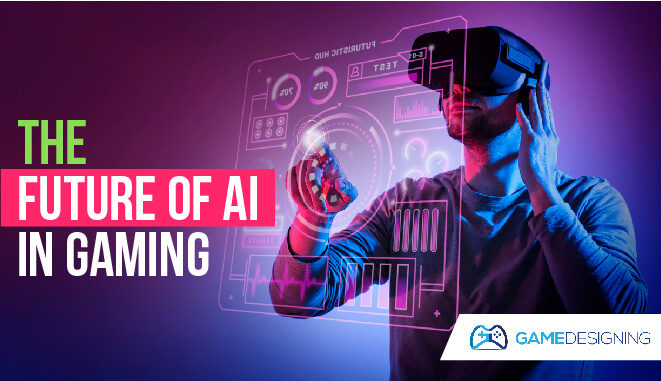Artificial Intelligence for games is the use of algorithms to create intelligent behavior in game characters and opponents. It enhances the gaming experience by providing realistic and adaptive interactions.
Integrating AI into games improves player engagement and creates more immersive and challenging gameplay experiences. AI algorithms power non-player characters (NPCs) to make decisions, learn from player actions, and adapt their strategies, adding a dynamic element to the gaming environment.
By simulating human-like intelligence, AI for games elevates the level of strategy and unpredictability in gameplay, making it a key component in modern video game development. As technology continues to advance, the role of AI in gaming is poised to grow, shaping the future of interactive entertainment.

Credit: www.gamedesigning.org
The Impact Of Ai On Gaming Experience
Artificial intelligence (AI) has significantly impacted the gaming experience, ushering in a new era of interactive gameplay. The growth of AI in gaming has revolutionized the way games are played and experienced, providing challenging and dynamic opponents for players to engage with. The integration of AI has blurred the line between human players and virtual counterparts, offering immersive and engaging experiences. AI’s ability to adapt and learn from player behavior enhances the interactive gameplay, providing a level of unpredictability and strategic complexity that elevates the gaming experience. As AI continues to advance, its influence on gaming is poised to further enhance the interactive and immersive nature of gaming experiences.
Ai Technology In Game Development
AI algorithms play a crucial role in game development, enabling the creation of intelligent virtual characters and opponents that enhance the gaming experience. Through machine learning, games can adapt to player behavior and provide personalized experiences. Natural language processing allows for more immersive interactions with non-player characters, while computer vision facilitates realistic visual elements in games, such as character animations and environmental details. By integrating AI technology, game developers can offer players engaging and dynamic experiences, tailored to individual preferences and playing styles.
Ethical And Social Implications
Artificial Intelligence for Games has brought about significant advancements, but it also raises ethical and social implications. When it comes to player ethics and AI, it is essential to consider the impact of AI decisions on player experiences and the potential for AI to manipulate player behavior. AI data privacy is another critical aspect, as the collection and use of player data by AI systems raise concerns about privacy and consent.
The integration of AI into society has wider implications, influencing aspects such as social interaction. AI’s ability to understand and mimic human behavior may alter societal dynamics, affecting how people interact and communicate. Moreover, the impact of AI on social interaction is an area of concern, as it may reshape human relationships and influence social structures.
Ai Challenges And Future Innovations
Artificial Intelligence (AI) has revolutionized the gaming industry by introducing complex challenges and pushing for future innovations. Overcoming limitations, the concept of AI versus AI competition has gained traction, creating intense and adaptive gameplay experiences. Predictive AI in gaming has also played a crucial role in enhancing player interactions and experiences, ushering in a new era of strategic and dynamic gaming environments. These advancements are reshaping the gaming landscape, offering immersive and challenging experiences that continue to redefine the boundaries of AI integration in gaming.
Frequently Asked Questions Of Artificial Intelligence For Games
What Is Artificial Intelligence (ai) In Gaming?
Artificial Intelligence in gaming refers to the use of algorithms to create intelligent behaviors and decision-making capabilities for non-player characters (NPCs), enhancing the overall gaming experience with realistic and challenging interactions.
How Does Artificial Intelligence Enhance Gaming Experiences?
AI enhances gaming experiences by creating dynamic and adaptive non-player characters, providing players with more challenging and engaging interactions, and enabling personalized gameplay experiences that respond to individual actions and decisions.
What Are The Benefits Of Using Ai In Game Development?
By utilizing AI in game development, developers can create more immersive and realistic gaming environments, improve player engagement with intelligent non-player characters, and explore innovative gameplay mechanics, ultimately enhancing the overall quality and appeal of games.
How Is Machine Learning Integrated Into Ai For Games?
Machine learning is integrated into AI for games through algorithms that enable non-player characters to learn from player behavior, adapt their strategies, and dynamically improve their decision-making, resulting in more realistic and engaging interactions within games.
Conclusion
Incorporating AI into gaming enhances user experience, engagement, and retention. As technology advances, the potential for AI in game development is limitless. The ability to adapt and learn from player behaviors further immerses users in virtual worlds. AI-driven game development is a game-changer for the industry’s future.





